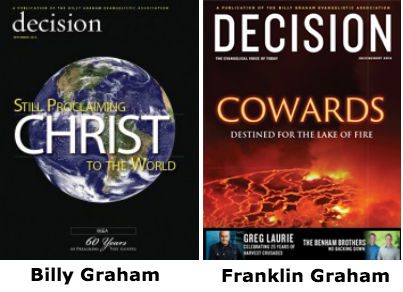Last week we looked at Lydia Bean’s study of why and how white evangelical Christians in America came to identify themselves primarily according to partisan political indentifiers. In the late 20th century, the marks of an evangelical — and thus, for white evangelicals, the marks of a Real, True Christian — became Republican. This happened, not coincidentally, at the same time that the identity of the Republican Party was changing to embrace the votes and the agenda of the former Dixiecrats.
This is why I say Bebbington Schmebbington. American white evangelicals no longer identify themselves according to the kinds of religious temperaments described in David Bebbington’s “quadrilateral” of biblicism, crucicentrism, conversionism and activism. That’s not how the tribe defines or enforces its own boundaries. Those boundaries have become political and defiantly partisan — anti-abortion, anti-gay, Christian nationalism, and a belief in “small government” in the Atwaterian sense of the term.

This is clearly demonstrated in the way that the tribally significant designation of “post-evangelical” gets assigned. Richard Cizik spent decades in Washington D.C. as the representative of the National Association of Evangelicals before he got pushed out and redefined as a “post-evangelical.” That didn’t happen because his “stance” on biblicism or conversionism changed — those hadn’t changed at all. That happened because he was insufficiently enthusiastic about opposing civil unions for same-sex couples, and because it was discovered that he had voted in a Democratic primary. Voting for a Democrat was — officially — a violation of evangelical identity. Bebbington Schmebbington.
Again, this partisan identification of evangelicalism with the Republican Party is theologically significant. When white evangelicals answer the question “Who do we say that we are?” with “Republicans,” they will inevitably also end up answering Jesus’ question in Matthew’s Gospel — “Who do you say that I am?” — the same way. And upon that rock they will build their church.
The rising popularity of the tribal designation “post-evangelical” is ironic, then, since the tribe now identifies itself according to partisan political boundaries that supplant the religious temperaments that had previously defined the tribe. White evangelicals have moved on and moved past those old standards of evangelical identity. White evangelicalism is now, according to its own gatekeepers and tribal leaders, post-evangelical.
Remember that that prefix, “post-,” is a chronological qualifier. It designates that which comes after the thing being qualified. The late-20th-century shift to Republican identity came after the mid-20th-century “Neo-evangelicalism” of Billy Graham and Christianity Today that arose in opposition to early 20th-century fundamentalism. Franklin Graham came after Billy Graham.
The tribe that calls itself “evangelical” in 2014 is, by definition, post-evangelical. It won’t do, then, for the tribal gatekeepers of this Republican post-evangelicalism to employ that term to those they’re trying to banish and anathematize — Cizik or Brian McLaren or Rob Bell or Rachel Held Evans or me or whoever. What they’re really saying is that we’re post-post-evangelicals. Or that we’re post-Republican evangelicals.












